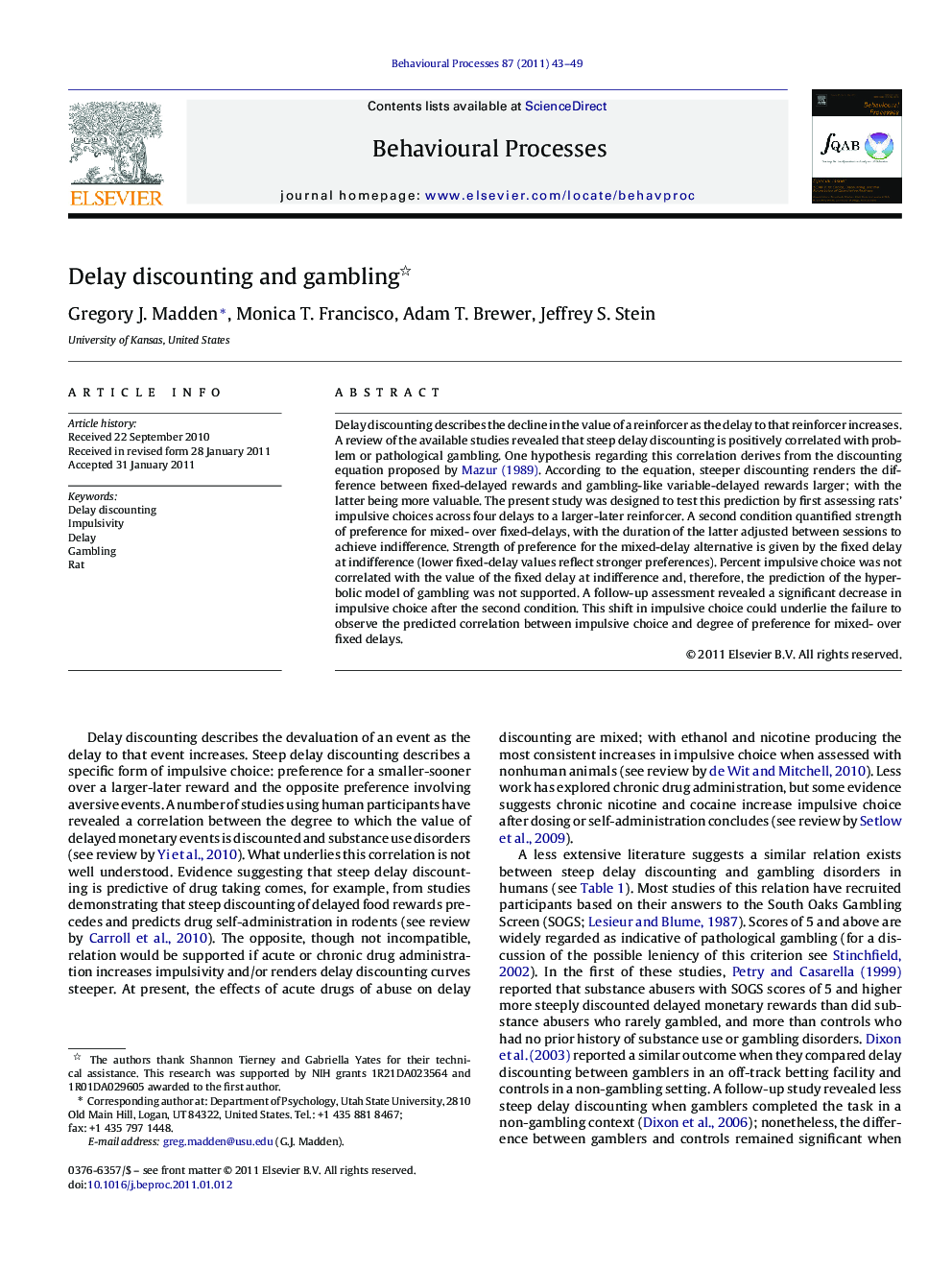| کد مقاله | کد نشریه | سال انتشار | مقاله انگلیسی | نسخه تمام متن |
|---|---|---|---|---|
| 2427047 | 1105939 | 2011 | 7 صفحه PDF | دانلود رایگان |

Delay discounting describes the decline in the value of a reinforcer as the delay to that reinforcer increases. A review of the available studies revealed that steep delay discounting is positively correlated with problem or pathological gambling. One hypothesis regarding this correlation derives from the discounting equation proposed by Mazur (1989). According to the equation, steeper discounting renders the difference between fixed-delayed rewards and gambling-like variable-delayed rewards larger; with the latter being more valuable. The present study was designed to test this prediction by first assessing rats’ impulsive choices across four delays to a larger-later reinforcer. A second condition quantified strength of preference for mixed- over fixed-delays, with the duration of the latter adjusted between sessions to achieve indifference. Strength of preference for the mixed-delay alternative is given by the fixed delay at indifference (lower fixed-delay values reflect stronger preferences). Percent impulsive choice was not correlated with the value of the fixed delay at indifference and, therefore, the prediction of the hyperbolic model of gambling was not supported. A follow-up assessment revealed a significant decrease in impulsive choice after the second condition. This shift in impulsive choice could underlie the failure to observe the predicted correlation between impulsive choice and degree of preference for mixed- over fixed delays.
Research highlights
► Reviews literature on correlation between delay discounting and problem gambling in humans.
► Assessed correlation between impulsivity and rats’ preference for mixed- over fixed-delays.
► Impulsive choice was not correlated with strength of preference for mixed- over fixed-delays.
► Impulsive choice significantly decreased during the mixed- vs. fixed-delay condition.
► This shift in impulsive choice could underlie the failure to observe the predicted correlation.
Journal: Behavioural Processes - Volume 87, Issue 1, May 2011, Pages 43–49